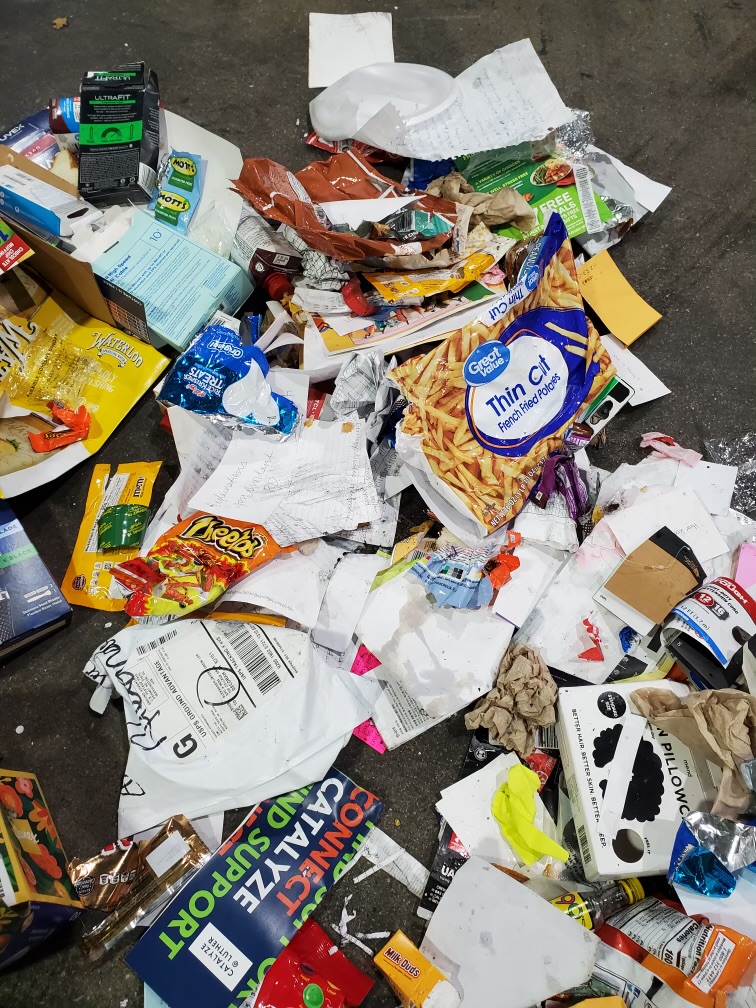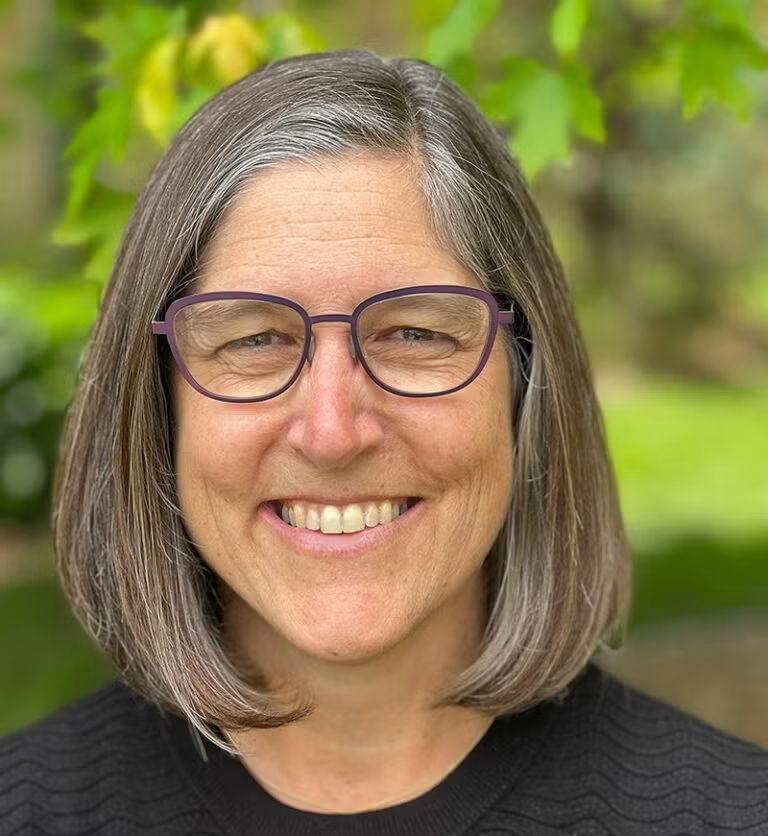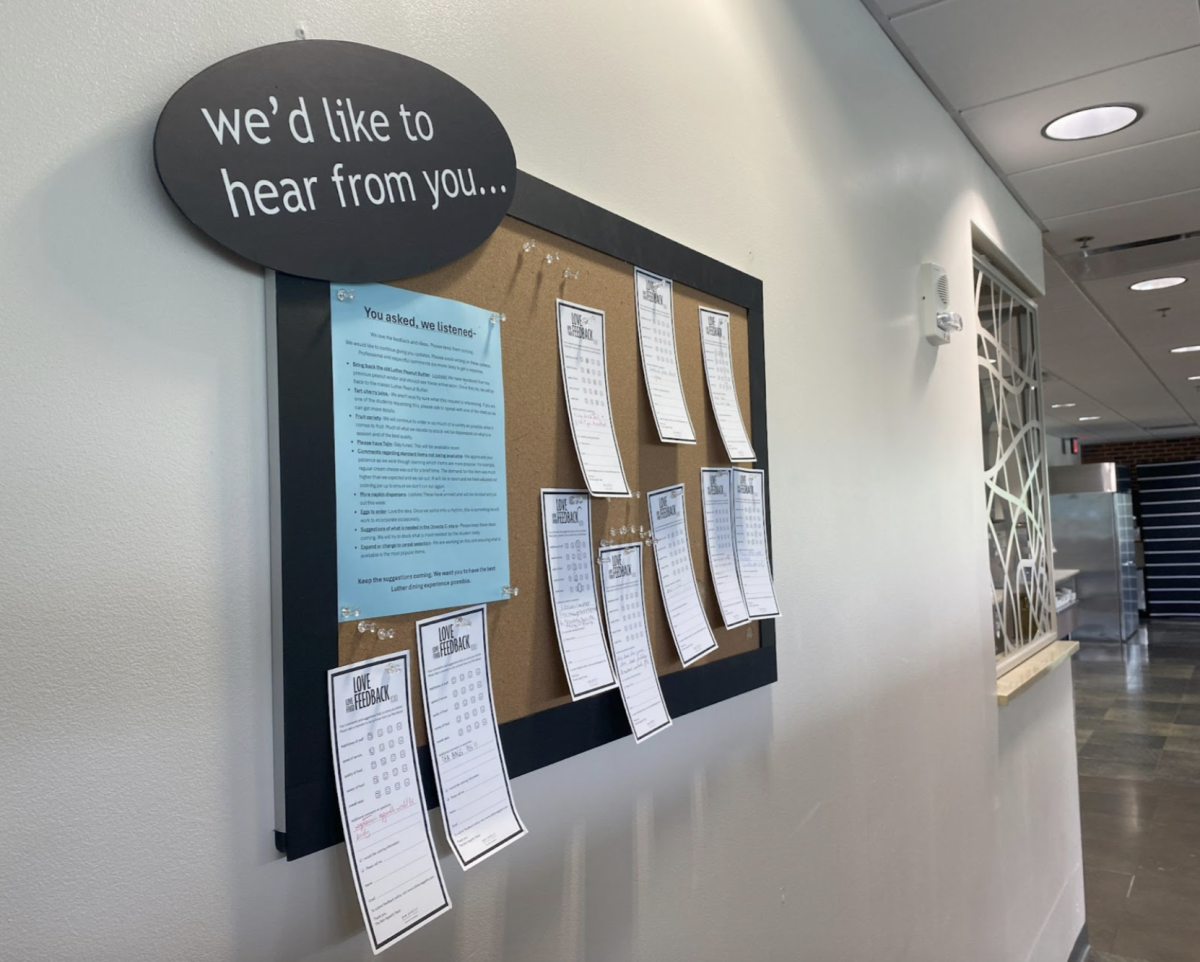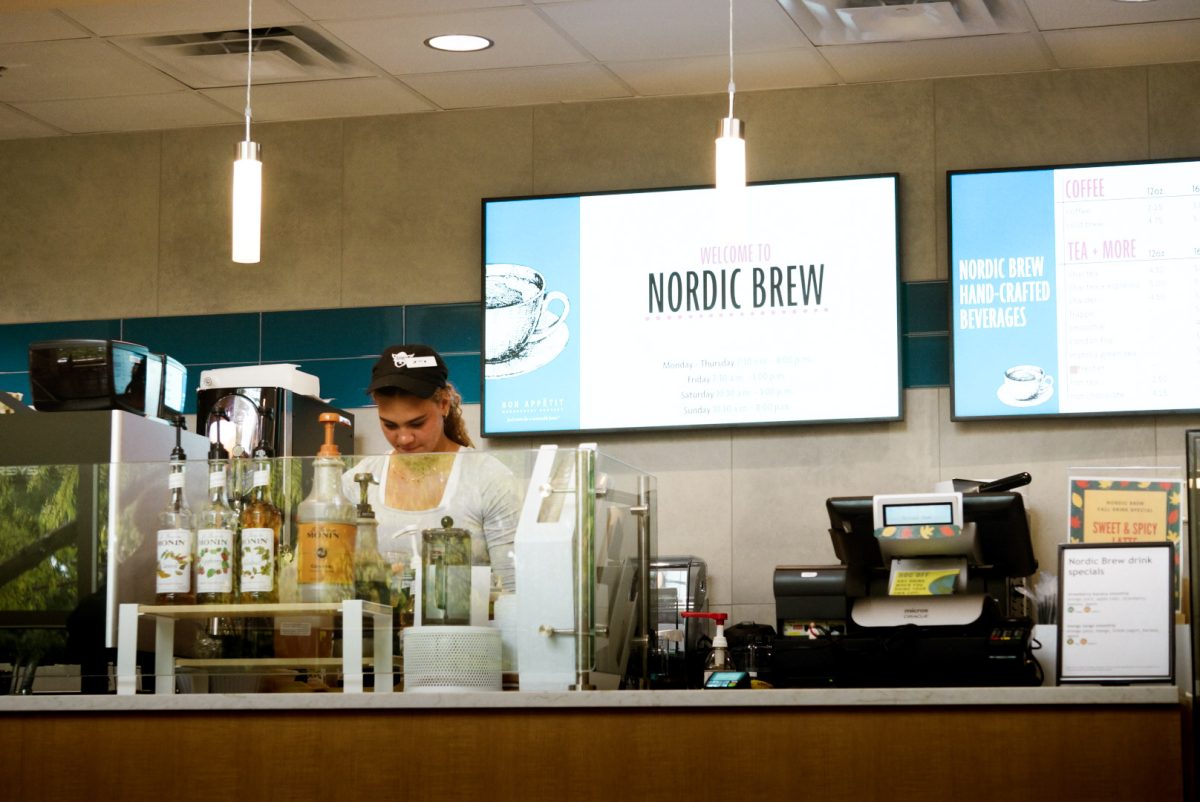On Wednesday, November 8, a message from Sustainability Coordinator Chris Frantsvog (‘84) was forwarded to Luther students that brought awareness to the campus community’s failure to sort their recycling.
The email informed the student body that this fall, record-high amounts of recycling were contaminated. This was due to a failure to separate recyclables, causing everything in the recycling bin to be thrown away and taken to a landfill — even properly sorted items. Frantsvog urged the community to sort carefully and do better in the future.
“This fall, all residence halls have suffered from really poor recycling sorting and it means that some of our bins of recycling have just been deposited in the landfill [forever] due to contamination,” Frantsvog said in the email.
Luther College focuses on promoting sustainability and serving as a catalyst for change when it comes to fighting climate change. This is accomplished through the Center for Sustainable Communities (CSC), which leads sustainability initiatives on campus with the help of student workers. However, sustainability is not a practice that is limited to the CSC or those involved. Recycling is a practice that both the CSC and the broader Luther community promote. Nonetheless, there have been some setbacks.
Although the amount of contaminated recycling was the highest it has ever been this fall, Frantsvog told CHIPS that he believes there are more important sustainability-related problems at Luther to address.
“A more significant problem, honestly, is that there are an awful lot of recyclables generally that get put in the garbage,” Frantsvog said. “The waste audits that we have done at Luther College [have shown that] 50% of what’s in our garbage cans is either recyclable or compostable.”
Whether it is dumping non-recyclables into the recycling or throwing recyclables away into the trash, the Luther community is struggling in terms of holding up to its goals of sustainability. CSC Sustainability Educator Lucy Tschida (‘24) believes that the entire community is responsible for sustainable change.
“It’s about community,” Tschida said. “Recycling is an act of compassion. I care enough about improving our collective life, and your life, to take a little extra time out of my day to put something in the right spot.”
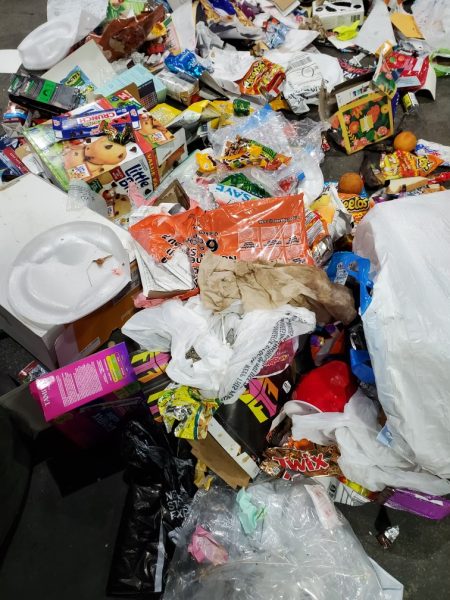
The CSC does not know why recycling this fall has seen record-high contamination. Recycling at Luther means sorting through recyclables or trash, and the CSC sees room for Luther community improvement. One solution that Frantsvog believes could help is for students to read labels and signs more carefully and intentionally, because some items that may be recyclable in other places could not be accepted in Decorah or Winneshiek County.
“What people are not doing is paying close attention to [signage],” Frantsvog said. “On the flip side of that, we want people to not pay attention to others who are doing something else. If you follow what the last person did, we get a lot of contamination.”
Plastic bags and plastic wrap are not able to be recycled anywhere on campus. These items often contribute to the contamination of recyclable materials. Additionally, students dumping their entire trash cans into the recyclable dumpsters can add to the contamination. The CSC is considering efforts to change the shape of the opening of certain recycling bins to prevent students from doing so.
Abby Weidt (‘25) said that while she personally believes sorting through recycling and trash doesn’t take a ton of time to do, she can understand the perspective of students who aren’t choosing to recycle due to confusion or uninterest.
“I can see why students are failing to sort their trash because sometimes compost bins around campus aren’t open, have paper over them, or other things, like in Towers where they blocked off the trash chute and individual floor trash bins that allow for sorting,” Weidt said. “It can add up in people’s minds and it takes the accessibility away that we may have once had.”
The Center for Sustainable Communities wants to help solve this issue for both students and the broader campus community in any way that they can. Any questions can be sent to [email protected].

